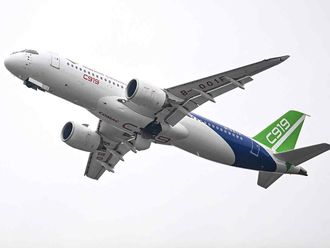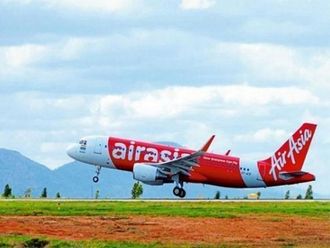Abu Dhabi: Aviation is a fast-moving, highly competitive environment; high cost, low margins. “One of the biggest challenges we face is convincing governments that airlines should have greater and easier access,” said James Hogan, CEO of Etihad Airways.
Hogan said that aviation is a dynamic industry with a competitive environment which is continuously evolving.
“The key issues for airlines include global economic stability, fuel prices and availability, infrastructure, airspace terminals, and slots as well as curfews,” he pointed out.
Hogan said that the other key issues are market access including investment and bilateral constraints.
Partnerships
Hogan highlighted the importance of partnerships to today’s airline business model.
“It is critical in terms of bilateral value, and essential to achieve a lower cost base and scale. How we partner is certainly changing and the ability to build a stronger proposition is fundamental. We are seeing the emergence of the battle of the hubs, and so that connectivity model is vital,” said Hogan.
He said: “Government policies make it difficult to move as fast as one would like, but we are seeing strong opportunities for growth.”
As per consolidation, there should be a kind of realignment of relationships, said Hogan.
He said that airlines should give due concern to skill shortages and training of staff.
Hogan said that Abu Dhabi has the best companies and has turned out to be a new centre for trade, tourism and partnerships.
“We at Etihad, have a strategy, to have organic growth, codeshare partnerships , and equity alliances: 29 per cent of Air Berlin, 40 per cent of Air Syechelles, 10 per cent of Virgin Australia and 3 per cent of Aer Lingus,” said the airline’s CEO.
Strategy
“Our equity investment proposition ensures commitment and obligation from both airlines and streamlines our entry into new markets, affordably and within foreign investment limits. This strategy helps us avoid the drawn-out process which applies for mergers and larger investments,and enables our continued expansion via established and respected global brands, while delivering reciprocal benefits to our partners, including access to our growing network and significant savings through activities including resource sharing and joint purchasing,” said Hogan.
Hogan said that legacy airlines suffer from high costs and low productivity with restrictive political and industrial arrangements.
He added that they still have their traditional route structures and hubs without giving due concern to global alliances as historic ties.
He said that Gulf airlines are changing their business models through network evolution to connect new markets.
Board
Only the Eithad Board can have their say if the airline is going to be listed of the stock markets, James Hogan, CEO of Etihad Airways, told Gulf News.
“To be listed on the market, this is up to the board and as for me as a CEO, I only care about running and making profits for the company,” said Hogan.
He added that the company’s performance in the second quarter will outperform that of the same period of 2012.
“We will have a very strong performance financially in the second quarter. We target continued double digit revenue growth through new markets, secondary destinations in current markets through strategic investments to add value, to deliver synergies and offer a return,” said Hogan.











